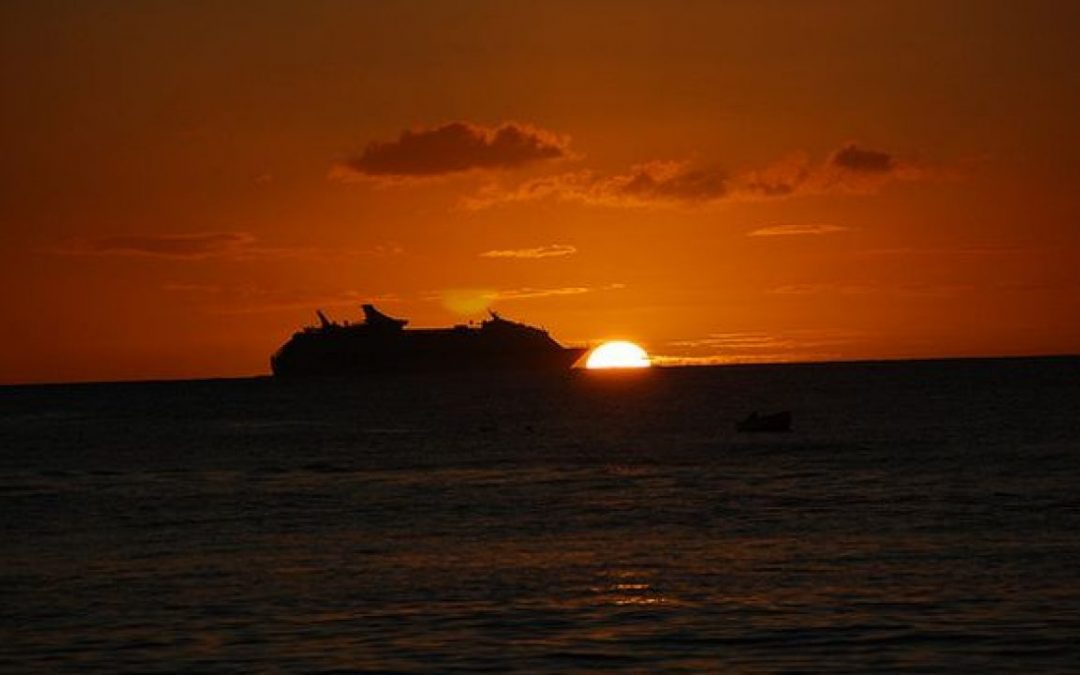Community members from around the world have launched the Global Cruise Activist Network, a worldwide group of activists who are demanding the cruise industry doesn’t return to business as usual as cruise ships start sailing again after the COVID-19 pandemic.
Image for Representation Purpose only; Credits: flicker.com/franbanks1
On Wednesday, September 2, port communities worldwide — including in the United States, Canada, the Caribbean, Central America, Australia, Europe, and Scandinavia — as well as those who represent the concerns of cruise victims and cruise workers, hosted a virtual press conference to talk about the launch of the network, discussed the ways the cruise industry impacts their local communities, and introduced a global set of guidelines called the “Principles of Responsible Cruise Tourism” they want companies to follow before cruise ships start sailing again.
“The Global Cruise Activist Network is giving a voice to people living in port communities worldwide. Our organizing efforts are giving us the power we desperately need, to better organize in our communities and to demand that the cruise industry doesn’t return to business as usual as it starts sailing again after the COVID-19 pandemic,” said Karla Hart of Juneau Alaska, one of the organizers of the network. “Through the network, our members have been able to support fellow activists in demanding additional noise restrictions; better understand how ports and cruise terminals are being financed; share what works for community-led air and water pollution monitoring; learn from locations dealing with referendums and legal actions; and track where and when cruise ships are returning.”
Members of the network represent locations including Key West, Florida; Charleston, South Carolina; New York City; Bar Harbor, Maine; Santa Cruz & Monterey Bay, California; Seattle, Washington; Juneau, Alaska (United States); Vancouver & Victoria, British Columbia (Canada); The Bahamas; The Cayman Islands (Caribbean); Belize City, Belize (Central America); Gold Coast & Sydney, Australia; Venice, Italy; Southampton, UK; Antwerp, Belgium (Europe); Bergen, Norway; and Copenhagen, Denmark (Scandinavia). The network also includes someone who was on board during the Costa Concordia sinking in 2012 who helps coordinate a group supporting cruise victims, and a former cruise employee who helps coordinate a labor rights group supporting crew members still stranded at sea.
PRINCIPLES OF RESPONSIBLE CRUISE TOURISM
For decades, the cruise industry’s business practices have put the social fabric, economic integrity, public health, and environment of host communities — as well as passengers, crew, coastal and marine ecosystems, and the climate — at risk. The latest example of this — the industry’s mishandling of the COVID-19 pandemic — shows that the industry is unwilling to protect the public interest without legally binding regulations.
Inspired by the 2002 Cape Town Declaration on Responsible Tourism, the Future of Tourism Coalition’s Guiding Principles, and the principles of Free, Prior, and Informed Consent, the Global Cruise Activist Network is calling cruise companies to delay their return to operations until they address the “Principles of Responsible Cruise Tourism.”
“The Global Cruise Activist Network is calling for an equitable and responsible system of leisure travel that optimizes economic benefits to all stakeholders, while eliminating the negative social, public health, and environmental impacts of cruising on port communities, workers, and passengers. We oppose the return of a ‘business-as-usual’ cruise ship industry. Until these common sense policies are collectively adopted, effectively implemented, and consistently monitored, the cruise industry will remain complicit in putting passengers, crew, communities, and the planet at risk,” said Jane da Mosto of Venice, Italy.
Each member of the network is focused on a specific set of principles that are unique to the needs and demands of their area. These principles include:
- Self-determination: Respect the universal right to self-determination of each home port and ports of call, including nearby Indigenous communities.
- Economic impacts: Address the cruise industry’s ongoing history of exploitive business practices by implementing policies that maximize the retention of revenue within home ports and ports of calls.
- Labor: Create a safe, just, and equitable environment for workers on board and on shore by aligning with the strictest labor and environmental standards in the world.
- Climate change: Stop contributing to climate change by publicly committing to achieving zero emissions across the entire global fleet, including implementing slow-steaming protocols, halting LNG investments, and eliminating the use of heavy fuel oil globally.
- Air and water pollution: Stop polluting the air and water by leading the development of a universal shore power system, ceasing the use of scrubbers, and stopping the dumping of all waste near shore.
- Monitoring and transparency: Install continuous air and water monitoring equipment and publicly disclose the performance, and support third-party monitoring.
- Environment and biodiversity: Reduce speeds near coasts to prevent whale strikes and avoid sonic disturbances to sensitive coastal and marine wildlife, stop development of private cruise destinations, and eliminate dumping of all plastic waste.
- Public health: Notify passengers of the potential health risks of breathing ship exhaust, implement measures to control the spread of disease, and when an outbreak occurs, cease all travel immediately and provide real-time reporting of infectious diseases.
- Crime victims: Institute policies and practices to protect passengers, including from sexual assault, and implement Man Overboard Detection technology.
- Worker repatriation: Provide for the repatriation of all ship-based crew in the event of future disease outbreaks, and ensure that crew members who remain on board are being adequately paid.
The Global Cruise Activist Network’s logo features two international maritime flags representing the letters K and L, which communicate “I wish to communicate with you” (K or Kilo) and “You should stop your vessel immediately” (L or Lima).
Source:- Marine Insight






